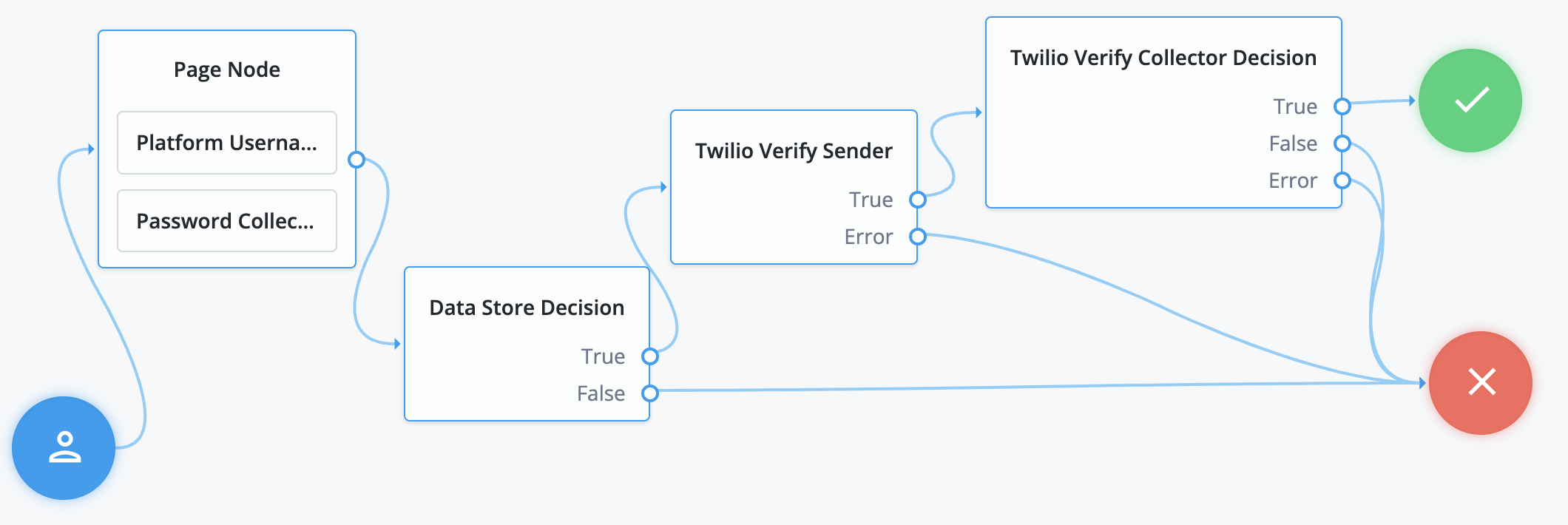Twilio Verify Collector Decision node
Collects a one-time passcode from the user and validates it against the Twilio Verify service.
Place this node after the Twilio Verify Sender node in the authentication flow.
Outcomes
-
TrueOTP is approved successfully. -
FalseOTP isn’t approved. -
ErrorException occurred, and the error message is stored in shared store.
Properties
| Property | Usage |
|---|---|
Hide Code Text |
If enabled, hides the code text from the end user similar to a password collector. Default: enabled |
Identifier Shared State |
The shared state variable to search for the user identifier. |
Twilio examples
Prompt user for phone number
The following example validates the user’s username and password, asks the user for their phone number,
and sends a one-time passcode over SMS to that phone number.
In this example, the Twilio Verify Sender node has the Request Identifier enabled.
In production, alter this flow to pull the user’s userIdentifierphoneNumber from their profile:

Find phone number in user profile
The following example validates the user’s username and password, identifies the user, finds the user’s phone number in their profile, and sends a one-time passcode over SMS to that phone number.
The Identify Existing User node has the following configuration:
- Identifier
-
_id - Identify Attribute
-
username

Verify the phone number is a mobile carrier
The following example validates the user’s username and password, identifies the user, finds the user’s phone number in their profile, verifies the phone number is a mobile carrier, and sends a one-time passcode over SMS to that phone number.
The Identify Existing User node has the following configuration:
- Identifier
-
_id - Identify Attribute
-
username
